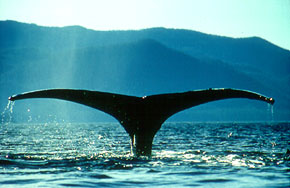Although renewed calls for a national identity card have sparked a heated debate in the United States in the wake of the Sept. 11 terrorist attack, such cards are the norm in most of the world.
Published:
26 September 2001 y., Wednesday
Although renewed calls for a national identity card have sparked a heated debate in the United States in the wake of the Sept. 11 terrorist attack, such cards are the norm in most of the world.
"It's hard to find countries without ID cards," said Simon Davies, the director of Privacy International, which is based in England. "It's safe to say that the majority of countries have some kind of national identification system."
Civil liberties groups oppose national identification cards on the grounds that they substantially increase police power and facilitate information-sharing among government agencies.
Proponents, including law enforcement officials, say the cards help streamline government interactions with the public by providing tamper-resistant proof of identification.
Šaltinis:
wired.com
Copying, publishing, announcing any information from the News.lt portal without written permission of News.lt editorial office is prohibited.
The most popular articles
 In England it's thought nearly one in six children are overweight - something the government is trying hard to change.
more »
In England it's thought nearly one in six children are overweight - something the government is trying hard to change.
more »
 Self-styled "freeconomist" Mark Boyle is on a mission to survive for one year by trading his skills, living off the land, and finding freebies.
more »
Self-styled "freeconomist" Mark Boyle is on a mission to survive for one year by trading his skills, living off the land, and finding freebies.
more »
 You may see lots of people wearing red ribbons today.
more »
You may see lots of people wearing red ribbons today.
more »
 Former astronaut turned MEP Umberto Guidoni of the leftist GUE/NGL group believes that the European Union should have a major role in space exploration.
more »
Former astronaut turned MEP Umberto Guidoni of the leftist GUE/NGL group believes that the European Union should have a major role in space exploration.
more »
 A Dutch couple are caught up in the middle of a baby scandal. They bought the baby over the internet from its Belgian mother, now the mother wants her baby back.
more »
A Dutch couple are caught up in the middle of a baby scandal. They bought the baby over the internet from its Belgian mother, now the mother wants her baby back.
more »
 For the past 12-weeks the Japanese tourist has been living in Terminal One at Mexico City International Airport.
more »
For the past 12-weeks the Japanese tourist has been living in Terminal One at Mexico City International Airport.
more »
 Growing numbers of older Europeans are choosing to work longer, reversing the previous trend toward early retirement – a development that could ease Europe’s aging population problem.
more »
Growing numbers of older Europeans are choosing to work longer, reversing the previous trend toward early retirement – a development that could ease Europe’s aging population problem.
more »
 The Saemangeum land reclamation project would use a 33-km (20.5 mile) sea dyke to reclaim an area of 400 square kms (155 sq miles), turning coastal tidelands that are key feeding areas for globally threatened birds into land for factories, golf courses and water treatment plants.
more »
The Saemangeum land reclamation project would use a 33-km (20.5 mile) sea dyke to reclaim an area of 400 square kms (155 sq miles), turning coastal tidelands that are key feeding areas for globally threatened birds into land for factories, golf courses and water treatment plants.
more »
 Sixty – four pilot whales stranded on the north coast of Tasmania.
more »
Sixty – four pilot whales stranded on the north coast of Tasmania.
more »
 For decades starlings have descended on the Italian city of Rome making it their winter home.
more »
For decades starlings have descended on the Italian city of Rome making it their winter home.
more »